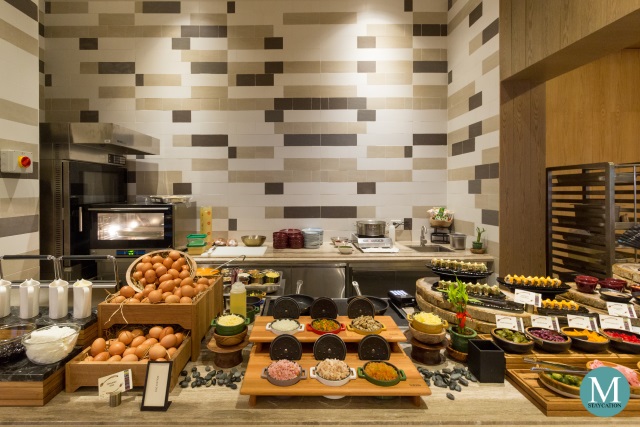Hotel eggs are a staple of many travelers’ morning routines, offering a quick and convenient way to start the day. However, for those who are curious or cautious, a common question arises: Are hotel eggs real? This query often stems from concerns about food quality, preparation methods, and the authenticity of the ingredients used. While the answer may seem straightforward, there is more to this topic than meets the eye. Understanding the different ways hotels serve eggs can help guests make informed choices and ensure they get the best possible breakfast experience. From buffet-style options to made-to-order dishes, the variety of egg preparations in hotels can vary widely depending on the establishment and its target audience.
The Reality Behind Hotel Eggs
When it comes to the question of whether hotel eggs are real, the short answer is yes—most hotel eggs are indeed made from fresh, whole eggs. However, the term “real” can be subjective, especially when considering how these eggs are prepared and served. Many hotels offer a range of breakfast options, including scrambled, fried, poached, and omelets, which are typically made on-site using fresh eggs. These eggs are often sourced from local farms or reputable suppliers, ensuring that they meet food safety standards. That said, some hotels may use pre-packaged or frozen egg products for convenience, particularly in larger chains where consistency and efficiency are priorities.
For travelers who are concerned about the quality of their breakfast, it’s worth asking the staff about the sourcing and preparation methods of the eggs. Some hotels may even provide information on their website or through guest services, giving diners peace of mind about what they’re consuming. Additionally, guests can opt for made-to-order eggs rather than pre-cooked options, which tend to be fresher and more customizable.
Common Breakfast Egg Options in Hotels

Hotels typically offer a variety of egg-based breakfast options to cater to different tastes and dietary preferences. One of the most popular choices is the classic scrambled eggs, which are often served with toast, bacon, and fruit. Another common option is fried eggs, which can be prepared to order with varying levels of doneness. For those looking for a more indulgent meal, omelets are a favorite, allowing guests to add their preferred fillings such as cheese, vegetables, and meats.
In addition to these traditional choices, many hotels now offer healthier alternatives, such as egg white omelets, veggie-packed frittatas, and low-fat versions of classic dishes. These options are ideal for guests who are watching their cholesterol intake or following specific dietary guidelines. Some upscale hotels may even feature gourmet egg dishes, such as shakshuka or Benedict, which elevate the breakfast experience with unique flavors and presentation.
The Difference Between Buffet and Made-to-Order Eggs

One of the key factors that influence the perception of hotel eggs is whether they are served from a buffet or made to order. Buffet-style eggs are often pre-cooked and kept warm, which can lead to questions about freshness and quality. While some hotels take great care in preparing these dishes, others may prioritize efficiency over culinary artistry. In contrast, made-to-order eggs are prepared in front of the guest, ensuring that they receive a fresh, high-quality meal tailored to their preferences.
Guests who are unsure about the quality of buffet eggs can request a made-to-order option, which not only guarantees freshness but also allows for customization. For example, a traveler might choose to have their eggs cooked to a specific level of doneness or request additional ingredients such as avocado or gluten-free bread. This flexibility makes made-to-order eggs a popular choice among discerning diners.
Tips for Choosing the Best Hotel Eggs

To ensure a satisfying breakfast experience, travelers can follow a few simple tips when selecting hotel eggs. First, it’s helpful to research the hotel’s reputation for breakfast quality. Reading reviews from previous guests can provide valuable insights into the freshness and variety of the egg options available. Additionally, guests should consider the time of day when they plan to eat breakfast, as some hotels may have limited options during off-peak hours.
Another useful strategy is to ask the staff about the preparation process. Many hotel employees are happy to explain how the eggs are cooked and what ingredients are used. This can help dispel any doubts about the authenticity of the dish. Finally, guests should not hesitate to request modifications or alternative options if they have specific dietary needs or preferences. By taking these steps, travelers can enjoy a delicious and satisfying breakfast without worrying about the quality of the eggs.
Exploring Alternative Breakfast Options

While eggs are a popular choice for hotel breakfasts, they are not the only option available. Many hotels offer a wide range of breakfast items, including pancakes, waffles, oatmeal, and yogurt. For those who prefer a lighter meal, fruit platters, pastries, and smoothies are also commonly featured. These alternatives can be a great way to mix up the breakfast routine and avoid relying solely on egg-based dishes.
In addition to traditional fare, some hotels have started to incorporate international flavors into their breakfast menus. Dishes such as Japanese tamagoyaki, Mexican chilaquiles, and Indian parathas offer a unique twist on the morning meal and can be a delightful way to experience new cuisines. These options are particularly appealing to travelers who want to explore local food culture while staying at a hotel.
Conclusion
Hotel eggs are generally real, but their quality and preparation method can vary depending on the establishment. Whether served from a buffet or made to order, these dishes play an important role in the breakfast experience for many travelers. By understanding the different options available and asking the right questions, guests can make informed choices that align with their preferences and dietary needs. Ultimately, the key to enjoying a great hotel breakfast lies in knowing what to expect and how to navigate the menu effectively. With a little bit of awareness and communication, travelers can look forward to a satisfying and delicious start to their day.



